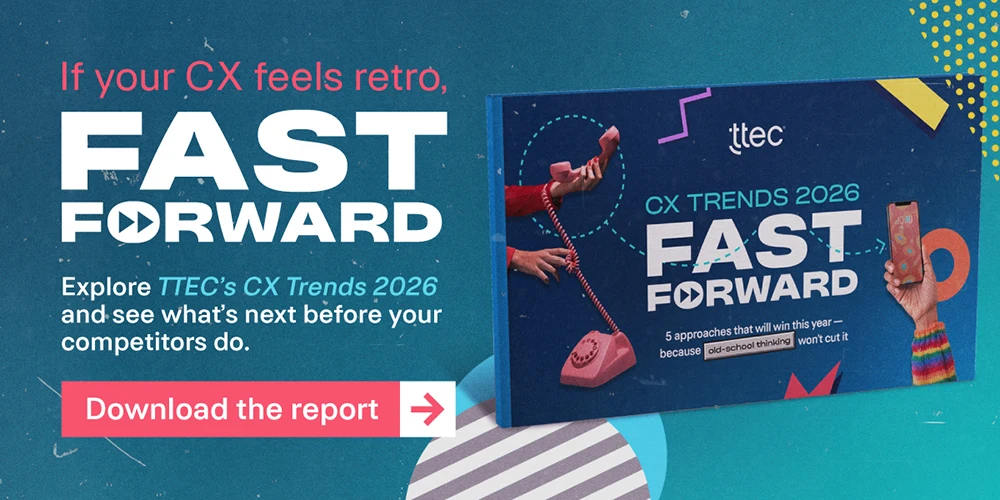In recent years, the automotive buying journey has been transformed by digital technology. From consideration, evaluation, and purchase, digital channels serve as the primary information-gathering source.
In fact, according to the “2014 Automotive Buyer Influence Study” conducted by AutoTrader Group, consumers now spend 12 hours online comparing prices, product features, and other factors that weigh into their purchasing decisions compared to just 3.5 hours offline visiting dealerships.
This shift in the increasing use of digital channels for automotive information is creating incredible opportunities for dealers and industry executives to learn more about customer behavior and to engage with customers more effectively. But, to meet their growing needs and respond appropriately, companies must first deploy the right customer experience technologies.
Here are 10 questions automotive leaders should ask themselves to determine whether they have the right mix of technologies in place to optimize the customer experience.
1. Are you able to identify customers whenever they reach out to you, regardless of the channel or channels they use? Automotive customers who have purchased or leased at least one vehicle and have a history of service appointments and interactions with automotive companies expect automotive companies to know who they are. Automotive companies can draw on the wealth of transactional and behavioral information that’s available about each customer to personalize the experience and deepen relationships, which can strengthen loyalty and long-term customer value.
2. How old is your contact center routing platform? State-of-the-art contact center routing technologies can intelligently connect each customer to a specific associate or employee whose individual skills match the customer’s needs. This ensures that customers receive relevant support based on their profiles, the channels used, the type of vehicle they own or lease, and other known attributes. Connecting customers to the right employees will improve the customer experience while optimizing operational efficiency.
3. Are you effectively serving your customers across all contact channels? Automotive customers use a wide variety of touchpoints but they don’t necessarily view themselves as omnichannel; they simply expect to receive consistent experiences across any and all of the channels they use to interact with dealerships and automotive companies. A cloud contact center platform enables automotive organizations to easily add new channel support capabilities on the fly while distributing associates to active channels as customer volumes dictate.
4. Are you arming your front-line employees with the right tools and information? Automotive customers expect companies to know who they are and the type of vehicles they’re driving. Front-line employees need effective tools and access to data to provide customers with relevant and timely support. This includes arming employees with real-time information about the vehicles each customer owns and recent channel interactions for each customer which can be used to provide relevant support. Disparate systems make it extremely difficult for employees to know the full scope of each customer’s relationship with the organization or for staffers to deliver the type of personalized service that customers expect.
5. Are you able to quickly identify customer satisfaction issues through analytics? Automotive customers aren’t always candid in their responses to satisfaction surveys. As such, it’s important for automotive companies to use speech, text, social, and other types of analytics tools to identify aspects of the customer experience that the organization can improve upon (e.g., new customer onboarding, problem resolution). Automotive companies that can rapidly identify and respond to customer satisfaction issues from across the full spectrum of the customer’s relationship can enhance the customer experience, strengthen satisfaction, and boost business results.
6. Are you effectively resolving customer issues upon first contact? Today’s mobile customers have multiple contact options beyond voice calls: IVR, online self-service, chat, click-to-call, email, mobile apps, and more. Automotive customers who aren’t able to resolve their inquiries quickly and easily have long memories and will likely find a company that can better support them when it comes time to purchase or lease another vehicle. As automakers compete for customers, companies need to be able to determine how effectively they’re supporting customers and to distinguish their services from rivals. The use of predictive analytics can help decision-makers determine whether a customer is likely to call back as well as the reason for that repeat call. Meanwhile, customer service associates can prevent repeat calls by taking a holistic, proactive approach to customer support, improving FCR by solving current and future issues on the spot.
7. Do you have the ability to quickly react to real-time data in addressing issues when delivering customer experience (missing SLAs, understaffed against call volume, etc.)? Automotive companies that aren’t responsive to the needs and preferences of its customers run the risk of losing valuable customers to competitors. Real-time management and reporting tools enable decision-makers to immediately identify performance issues with customer support that can be acted on quickly. Developing a sense-and-respond type environment will enable your organization to provide customers with prompt and consistent support and satisfactory experiences that strengthen loyalty.
8. Are your contact center managers able to respond quickly to disruptive customer experience events before they go viral? An irate customer posts about a terrible service experience that goes viral. Will your contact center managers have that deer-in-the-headlights look about them or receive advanced warning about the post and be prepared to respond to it? Contact center analytics can help managers immediately identify customer support issues and respond to them quickly before they spiral out of control.
9. Are customers who interact with dealership employees able to access the same expertise as those who call the contact center? Employees who interface directly with customers should have access to the same customer information that’s available to contact center associates. A next-generation customer experience solution can provide front-line employees with a complete view of customers’ histories as they interact with each other. Meanwhile, intelligent call routing can ensure that customer calls missed by a local dealership can be redirected to associates in a satellite office with the corresponding skills to provide relevant support.
10. How can we use telematics to improve the customer experience? Telematics data gathered from automobiles can provide automotive leaders with valuable insights about customers and their vehicles. This includes information about driving behaviors, location data, and maintenance requirements that can be used to generate proactive customer notifications and to strengthen the customer-company relationship. For example, telematics data can inform a dealer that a customer’s vehicle is about to reach 50,000 miles. A notification can be sent to the customer’s mobile phone to remind her that it’s time for the 50,000 mile service (check hoses for leaks/bulges/cracks, check fluid levels, inspect fuel and exhaust systems, etc.) along with a discounted offer for the maintenance work.
Each vehicle purchase or lease represents a new opportunity for automotive companies to strengthen engagement and develop long-term relationships with customers. Companies that have the right customer experience technology in place are better positioned to meet customer expectations and provide the level of experiences customers demand.
Also, check out the most recent issue of our e-newsletter.
Related Content:
Blog Post: From Concept to Reality: A Glimpse at Your Automotive Experience in 2020
Article: Innovation Drives Customer Experiences
White Paper: The Role That Technology Plays in the Automotive Customer Lifecycle
Ten Things to Ask Yourself About Automotive Customer Experience Technology















